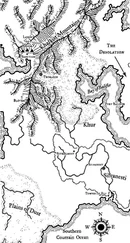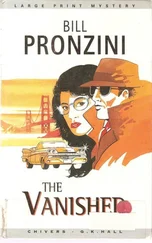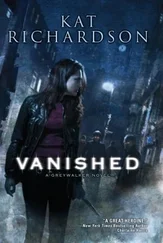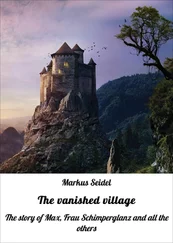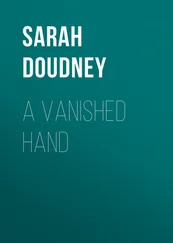‘Marika,’ I said gently, holding up a hand. Her eyes continued moving between us and, after a couple of seconds, I saw Healy snap out of the fug, like he’d stepped right out of a bad dream, and he glanced at me, ceding control of the conversation. ‘Marika, my name is David,’ I continued, keeping my voice soft. ‘You aren’t in danger any more. We are here to protect you. But I need to know you understand me.’
Her eyes finally stopped moving and fell on me.
‘Do you speak English, Marika?’
No movement. She didn’t seem to remember me from the loft.
I let the silence hang there. Healy eyed me – his way of passing judgement on my tactics – but this wasn’t rocket science. She’d been pushed and pulled around, dragged, bruised and beaten the entire time she’d been in the country. If there was ever a time she remembered being able to trust someone, it was so far back it probably didn’t even exist as a memory any more. There was nothing as heartbreaking as seeing a childhood destroyed; a succession of men had taken hers from her, and it was never coming back. Silence was the least we could offer her.
She blinked. Tears in her eyes.
‘It’s okay,’ I said quietly, and without moving any closer to the bed, I dropped to my haunches, down to her eye level. It was like rubbing away the dust and the grime on a windowpane and looking through to the other side: suddenly, despite the bandaging, I could see how young she was. In her eyes. In the movement of her mouth. In the small shape of her body, and the way her fingers clawed the bed sheets, like a comforter. In the videos she’d looked fourteen or fifteen. Now she looked even younger, barely into her teens at all, and my head filled with images of Pell – and what I was going to do to him.
I waited again. She was facing me, her back to Healy, and I could see him getting impatient behind her, shifting on the spot, glancing back out the door and into the corridor, as if he expected the cavalry to arrive any minute.
Then, finally, a spark of recognition in her eyes.
‘You …’ she said.
She’d spoken through the plastic mask over her mouth, her voice quieter and less refined. I nodded, and then sat back, on the floor. ‘I hope they clean in here,’ I said, smiling. She didn’t react, but that was fine. Even if her trust could never be rebuilt, it was at least important that she knew we carried no threat. ‘Do you remember me, Marika?’
She just looked at me.
‘Do you remember when I found you?’
‘Yes,’ she said.
She studied me for a moment, the bandages tight against her skin, disguising the tiny movements that experts in kinesics, in the language of the body, would have called illustrators, adaptors and emblems. Without the whole of her face, it was possible to miss some of its subtlety – but I still felt a slight shift in her, as if her defences had come down enough to allow me a little closer. ‘You save me,’ she said.
I smiled. ‘The doctors saved you.’
She didn’t reply, but I could see her face soften.
‘Where did you learn to speak English?’ I asked.
She removed the mask. ‘TV.’
‘You learned everything from TV?’
‘Yes.’
‘What do you like to watch?’
‘The men take me …’ She paused. I didn’t say anything, but I let her know I knew she meant Wellis and Gaishe, and all the other worthless pond life that had had a part in bringing her here. ‘They watch football. Most of time just football.’
I nodded. ‘Do you like football?’
‘Yes. I play for the, uh …’
‘A girls’ team?’
‘Yes. In Cluj.’
‘You’re from Romania?’
She nodded. A flicker of sadness. ‘Yes.’
‘Were you as good as Gheorghe Hagi?’
The sadness disappeared and in her face, for the first time, was a hint of a smile. ‘No,’ she said. ‘No one better than Hagi.’
I smiled back.
Slowly, her legs slid away from her body, like part of a defensive barrier coming down, although she kept the sheets and blanket in close as a protective shield.
‘Marika,’ I said after a while, keeping my eyes on her and not on Healy, who was half turned towards the door again. ‘Would you mind if I asked you a few questions?’
She didn’t move. Didn’t react.
I nodded again, letting her know I understood her reluctance. I shuffled across the floor, so I was about four feet away, still at her eyeline. ‘Let me tell you about the men who kept you,’ I said, ‘about the ones who hurt you. They will never hurt you again, do you understand? The two men that kept you, they’re gone and they’re not coming back. Now I need to find the others. But to do that, I will need your help, okay?’
She glanced at Healy, then back to me.
‘I know it’s hard.’
Tears blurred in her eyes.
Then she nodded.
‘Thank you.’ I reached into my pocket, removed my pad and placed it down on to the floor next to me. The girl followed every movement, a habit born out of having to predict the next development, the next attack, the next assault. ‘Do you feel ready?’
‘Yes.’
I asked her how she ended up in the UK, and from there she told us – in staccato, broken English – about her journey. She was one of four sisters, with an absent father and a chronically depressed mother. Tears continued filling her eyes as she told us how she was grabbed one day on the way back from school and thrown into the back of a van, and then the next time she was conscious, she woke up in a room full of men – four, maybe five of them – and they raped her repeatedly. She told me she was eleven at the time. It was all I could do to keep it together, to remain emotionless as the pain tremored through her voice, and I had to look down at my pad to prevent her seeing my anger and thinking it was directed at her. I wrote meaningless notes while she told me how she’d been pulled out of the room and into a lorry, then another van, except this time she was in a new country, and they didn’t even speak her language.
‘When did you first get here?’ I asked.
‘In UK?’
‘Yes.’
‘December,’ she said.
‘December last year?’
‘Yes.’
‘So you’ve been here six, seven months?’
‘Yes. That was when I meet Adrian.’
The people who’d kidnapped her handed her over to Wellis, and from there she became a prisoner. As she talked, I realized she wasn’t scared of Wellis – or, at least, not like she had been at the beginning – but the way he’d used her and treated her had left her with a look of inevitability, as if being dragged from one punter to the next was all she should expect from life. She had no money. No one to run to. Nowhere to go. It was a heartbreaking moment; one of those times when it felt like you were watching someone drifting out to sea, knowing the fate that awaited them, and all you could do was watch from the shore.
‘He had friend,’ she said.
‘Adrian?’
She nodded. She’d referred to him as ‘Adrian’ throughout. She didn’t know his surname and had probably only learned his first name from listening to their conversations. ‘He had friend called Eric. He always …’ A pause. ‘He always look at me. Never say nothing. Just look. I didn’t like way he look at me.’
But eventually Eric Gaishe did more than look. I remembered Pell turning up the night I’d been watching their house, seeing him talk to Gaishe before driving off again. Gaishe must have told him Marika was unavailable, or Pell would have surely asked for her. Either way, it wasn’t much of a shift: one violent rapist to another.
‘Eric was one who hit head. I can’t remember nothing after. Just remember you. You save me.’
‘Do you remember any of the other men who came to see you?’
Читать дальше


